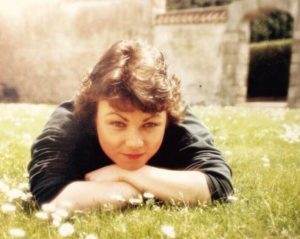
When Paddy Neasham followed in her mother’s footsteps to join the NHS she never dreamed that her children – and husband – would also be inspired to do the same.
Now, 44 years on from her days as a cadet nurse at Winterton Hospital in County Durham, she remains fiercely proud of the health service she has devoted her life to.
“The NHS is a national treasure – it is a fabulous thing we Brits have. We need to preserve it, as it is so precious. We need to treat it right to keep it going,” she said.
Following a family tradition
Paddy, the daughter of a miner, was born in Shotton Colliery in 1963 and, after leaving school, was encouraged by her mother to pursue a career in nursing.
“Mam was a nurse at Seaham Hall TB Sanatorium, and I just sort of followed in her footsteps. A job came up at Winterton and the rest, as they say, is history,” she said.
Paddy spent three years at Winterton, where she trained as a registered mental health nurse, and then worked at hospitals around the country and in Jersey.
Tough times helping others
In the late 1980s, however, she opted to retrain as a general nurse at a hospital in Sheffield – where she witnessed the aftermath of the Hillsborough disaster.
Almost 100 people lost their lives after a crush of football fans developed during an FA Cup semi-final between Liverpool and Nottingham Forest on 15 April 1989.
“I still remember that day so clearly,” she said. “I was on an early finish and my mam rang me in the afternoon after seeing a news piece on TV. It was absolutely horrific.
“I tried to ring the ward, to see if I was needed, but the switchboard was jammed. I then tried to drive into work but had to turn back because the traffic was so bad.
“I was working on a general surgical ward at the time and, the next day, we had about 15 patients admitted with crush injuries. One poor man lost his teenage son.”
Prime Minister Margaret Thatcher and Home Secretary Douglas Hurd both visited Paddy’s ward following the disaster, as did Liverpool manager Kenny Dalglish.
Prince Charles and Princess Diana also paid a visit, with Diana spending her time talking to patients while Charles – now the King – made sure to speak to the staff.
“Charles was lovely to us, but it was an awful time. There were so many harrowing stories, and the patients were traumatized. We just had to do our best,” said Paddy.
Moving back north
Paddy had given birth to her eldest daughter just months beforehand and, once she qualified, she remained in Sheffield for a year on the “fabulous” plastic surgery ward.
When her marriage broke up, however, she moved back to Durham to be with her family – taking a job in an elderly assessment unit at Shotley Bridge Hospital.
Just a few years later, in 1992, she met her current husband James – then a miner at Easington Colliery – and went on have a daughter and a son with him.
“The mines were all closing when I met James. I’m not sure if I inspired him or not, but he trained as a nurse and now works for TEWV in the crisis team,” said Paddy.
“My oldest daughter is just about to qualify as a psychologist, so she works for the NHS too, as does my son – who is a nurse. It’s kind of a family tradition now.”
Life of dedication
Paddy has devoted her whole working life to the NHS, spending ten years on an acute psychiatric ward run by TEWV in Durham while her children were young.
She later spent a decade with the Durham crisis team and is now part of the liaison and diversion team in Middlesbrough – supporting vulnerable people under arrest.
“The NHS is a wonderful institution, a real national treasure, which has helped generations of people. It very much deserves to be celebrated,” she said.